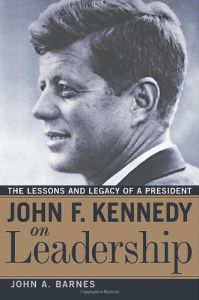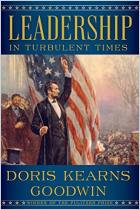Join getAbstract to access the summary!

Join getAbstract to access the summary!
John A. Barnes
John F. Kennedy on Leadership
The Lessons and Legacy of a President
AMACOM, 2005
What's inside?
John F. Kennedy revamped the presidency by developing his style, organization and charisma. Now it's your turn to lead.
Recommendation
In the 40-plus years since John F. Kennedy's assassination, many people have forgotten how far American politicians have come in their public personas. Every candidate tries to use the media, savvy advisers, staged events and a winning personality to develop an authentic, vote-getting public voice. Kennedy was the first president to master these essential political tools. This made him one of America's most popular presidents, as well as a celebrity. Kennedy's political personality was so strong that it virtually transformed the presidency. In this rich historical and personal story, author John A. Barnes does a great job of showing how Kennedy operated. JFK was enmeshed in pivotal events and each circumstance tested his ability to lead. Barnes clearly presents Kennedy's triumphs and shortcomings as well as his formula for successful leadership. getAbstract recommends this to aspiring and current leaders, and to those interested in history - or in politics the way it used to be.
Summary
About the Author
John A. Barnes has been a writer, journalist and television commentator for more than 17 years. His columns have appeared in the Boston Herald, The Detroit News and The New York Post. He is also the author of Ulysses S. Grant on Leadership.






















Comment on this summary